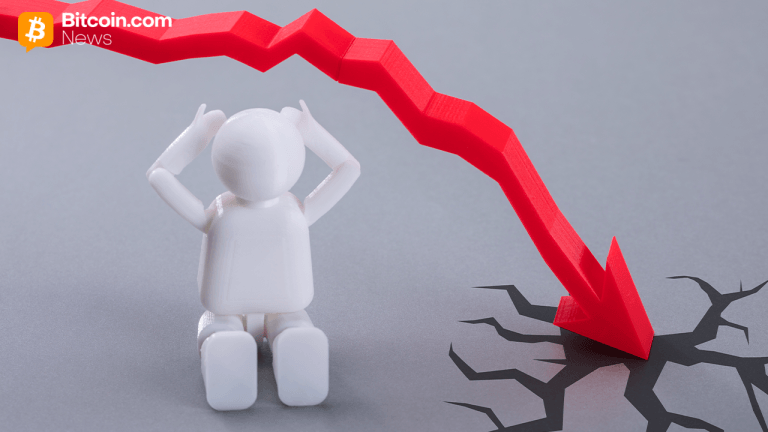After FTX Implosion, It’s Time To End Bitcoin’s Dysfunctional Relationship With Crypto
5 min readThis is an opinion editorial by Tim Niemeyer, a Bitcoiner since circa-2018 and co-host of the Lincolnland Bitcoin Meetup in Springfield, Illinois.
“Bitcoiners are trapped in a dysfunctional relationship with crypto and we want out!” — Michael Saylor
Amidst the carnage of the FTX drama, a moment of clarity illuminated the Twittersphere. Michael Saylor’s words were the signal in the noise resulting from the dysfunctional trainwreck unaffectionately known as “crypto”. Before we can truly appreciate his insights, we should first meditate on what makes this relationship dysfunctional or, in the context of couples therapy, a toxic relationship.
While many in the cryptocurrency industry were happily going about their life viewing their relationship with money (trust, commitment, support, etc.) in a positive light, they were ignoring the warning signs that their relationship was anything but healthy. Sure, all good relationships have their ups and downs. Disagreements happen, but overall you share common goals and trust the other to have your best interests at heart. There’s a certain level of expectation that your partner will support you, communicate openly and honestly, and refrain from controlling behaviors. Life this way is freeing and you’re generally able to flourish.
But what if one side doesn’t have your best interests at heart? What if they are dishonest? What if there becomes a pattern of disrespect? What if they ignore your needs? Sure, you can hope for change, but you still feel drained, stressed, anxious, or depressed. Eventually, you want out. Your need for a positive, healthy relationship overwhelms the comfort of the known, current relationship. The first step is admitting there’s a problem. Acknowledging signs of a toxic relationship are necessary.Signs Of A Toxic Relationship
Photo by Girl with red hat on Unsplash
In regards to our relationship with money, support may be displayed in many ways. One way we support each other is through the ability to trust that our counterpart has our best interests at heart. The overwhelming problem with the cryptocurrency sphere (defined here as everything other than Bitcoin) is that it’s still largely based on an expectation of trust. Whether it’s FTX, Celsius, LUNA or the countless other scams and Ponzis that are sewn into the fabric of the cryptocurrency industry, it’s clear that having centralized entities controlling your value requires you trust the fallible seamstresses and their incentives. It’s like the trust fall; an exercise in which one person lets him- or herself fall without trying to stop it, relying on their friend(s) to catch them. How many times do you allow yourself to fall to the ground before you lose trust?
These recent fallouts in crypto continue to illuminate the inherent dishonesty in its DNA. Investors are deceived into a false sense of security in the relationship; it’s a form of dishonest communication based on non-transparency and the over-leveraged nature of exchanges. Allowing humans to control money allows controlling behaviors to be coded into the system, which leads to growing resentment in the relationship … The relationship is further strained when the toxic side puts their needs ahead of your own. The needs of some CEOs often incentivize them into leveraging the customers’ trust to benefit their gain. This display of negative financial behaviors is becoming all too common in the cryptocurrency industry (again, non-Bitcoin-only entities). At some point, as my father would say, we need to separate the wheat from the chaff. Steps To Fix A Toxic Relationship
Photo by Luca Bravo on Unsplash
The first step is to accept responsibility. Not that you caused the situation per se, but that you acknowledge the situation you’re in and begin advocating for yourself. This can be done by investing in yourself. In the context of this article, that investment is education in Bitcoin as well as understanding the unintended consequences of adopting a “digital fiat” mindset present throughout the altcoin and centralized exchange industries. Once we shift from blaming to understanding, we allow ourselves to begin healing. The pain resulting from the recent developments will linger for a while, but it is our responsibility to not dwell on the past but move forward with compassion. The next step in the journey to healing is allowing yourself to be vulnerable again. This can be attained by sharing your self-love with others; calmly and clearly explaining the benefits of Bitcoin, self-custody and proof of reserves to friends and family.
People recovering from a toxic relationship can benefit from finding support. It is the opinion of the author that Bitcoiners should be that support structure. It’s ironic that many Bitcoiners are known as the toxic ones when they are the ones trying to illuminate the toxicity inherent in the ecosystem. That being said, an “I told you so,” doesn’t assist in the healing process. This is the moment where we must rise above and lead with compassion. We should hold space in our heart and allow others the time to heal and change.
There will be many who do not recover from a toxic relationship of this magnitude. While we can continue to educate from a place of humility, we must remember that, “You can lead a horse to water, but you can’t make it drink.” Everyone will ultimately heal in their own way at their own pace. Some may never learn. We’ve probably all had a friend who’s jumped from one toxic relationship to another. As much as you may want to help, they need to first choose to help themselves. Even more, some people will continue to “Tinder around'' with unhealthy cryptocurrency relationships. That’s their prerogative. If a friend of ours wants to be part of the hookup culture, that’s on them. They have to deal with the consequences of STDs and the like.
Regardless of the actions of certain exchanges or crypto in general, we must continue to espouse the benefits of Bitcoin in a positive light. Tell them how truth is born from trustlessness. Demonstrate how actual decentralization leads to pure democracy. Illuminate how immutability and permissionless systems allow for a free-flowing, cooperative society. Michael Saylor acutely recognized the toxicity we are allowing to proliferate through the perceived connection to crypto. We must choose to move forward towards a bitcoin standard for ourselves, our friends and family, and, ultimately, for society to flourish.
This is a guest post by Tim Niemeyer. Opinions expressed are entirely their own and do not necessarily reflect those of BTC Inc or Bitcoin Magazine.







